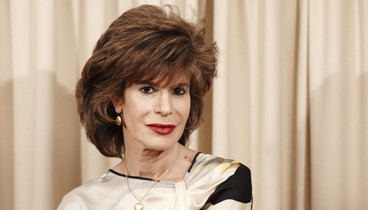Shoshana Zuboff, Harvard Business School professor, is beamed into Forum Stadtpark from the US over a live videostream. She sits in a leather padded chair in a wood panelled study decorated in luxuriant high taste. The scene could be straight from a 1930s Hollywood film set, if it weren't for the microphone on the desk in front of her and the black dog who wags back and forth in the background.
If her taste in décor is embedded in the past, her taste in the politics of business couldn't be more futuristic. This post is a summary of her initial statement, which kicked off Saturday afternoon's panel 'Reality is the Next Big Thing'.
Shoshana starts with a question: Why does Google matter? Her answer penetrates deep beyond Google's immense financial clout and beyond Google's unprecedented concentration of informational power. Google matters because they have pioneered an entirely new business logic. This new logic, Shoshana says, has already become the model for most new online businesses. And, effectively, if the Google model is the dominant model in the online world, then it will become the dominant model in the capitalist world.
But why is Google's business logic so innovative? In order to understand the answer to this, we have to first understand that we, the users, are not Google's customers. Google's customers are the advertisers and others who buy the data that Google collects on us, its users.
Capitalism has always depended on its populations for two things: employees and customers. This is no longer true. Google, the fourth most valuable company in the world, employs only 48,000 people. At the height of its power in 1958, General Motors was the largest private employer on the planet. For comparison, the largest private employer on the planet today is Walmart with 2.2m employees. Google and its dominant business model simply does not require many employees at all.
If the people are not Google's customers and they are not Google's employees, then what does Google need people for? Only one thing: data. “Data is becoming everything,” Shoshana says. “The ugly truth here is that this so called 'big data' is plucked from our lives without our knowledge and without our informed consent.” This big data, which Shoshana calls 'big contraband' or 'big stolen goods', is sucked from our social media, from our smartphones, from our every networked click, type and touch.
This new economic model has created a new asset class, which Shoshana calls surveillance assets. They attract a lot of investment: surveillance capital. What we've created in Google is a new logic of accumulation: accumulation by surveillance. And the new economic model is, of course, called surveillance capitalism. Populations no longer exist to serve and consume; we exist to be harvested.
These developments are moving very quickly. Google progressed from collecting the data of things we have done, through the data of things we are doing to making predictions of things we might do. Now Google wants to be able to, not only predict, but to influence what we will do next, in order to sell that influence. Reality is being turned into a new commodity class called behaviour. Reality is the next big thing for business.
Shoshana's presence in the room wasn't entirely as a video-conferencing harbinger of doom. She also presented her answer to what we can do about that prospect of doom.
“Capitalism,” she says, “is not intended to be eaten raw. We need institutions and regulations that cook capitalism and make it edible.” The capitalism of the nineteenth century was very raw and great political battles were fought for the social welfare state that made capitalism fit for human consumption. In a similar way, Google or any surveillance capitalism must not be eaten raw. They must be “cooked” through a reassertion of democratic rights and law.
“In the shadow of the dark Google, it has become fashionable to mourn the passing of democracy,” Shoshana concludes. “But if we leave behind democracy, we leave behind the best part of ourselves.” She reaches out to us from her 1930s office on the other side of the planet, stretching out a hand to the audience. “But I do not fear losing democracy because I do not anticipate it. I do not anticipate it because I believe in you, in each one of you. That's the promise of today. So go: do.”
Beginn des Seitenbereichs: Inhalt

Shoshana Zuboff: Reality is the Next Big Thing
- Das war das Elevate Festival 2016
- Dungeon
- Dank an unsere Partner!
- Red Bull Music Academy Stage
- Musikkulturelle Scheuklappen und spätes Liebesbekenntnis zu 160BPM
- Die 3 Partnerfestivals auf einen Blick
- Cologne On Pop
- Elevate the Campus & Coding Workshop für AnfängerInnen
- Elevate kündigt Diskursprogramm an!
- Q&A mit Yannis Varoufakis
Ende dieses Seitenbereichs.
Springe zur Übersicht der Seitenbereiche.